On This Day...November 22nd.
The incomparable Colonel Lewis 'Chesty' Puller, Commanding Officer, 1st Marines. Taken 22 November 1950 at Chigyong. Some quotes from 'Chesty';
"Great. Now we can shoot at those bastards from every direction." (On being surrounded).
"Son, when the Marine Corps wants you to have a wife, you will be issued one." (On being asked permission from a young marine to be married).
"The mail service has been excellent out here, and in my opinion that's all the Air Force has accomplished in the war" (Didn't say I agreed with the quotes, just putting it out here).
"All right. They're on our left, they're on our right, they're in front of us, they're behind us...they can't get away this time." (Again, on being surrounded).
"They're a damn sight better than the US Army. At least we know they'll be there in the morning" (About the Chinese surrounding him, and just to show it wasn't only the Air Force he had it in for).
The launch of submarine Puffer (SS-268) , Manitowoc River, Wisconsin, United States, 22 Nov 1942.
The first flight of the Royal Aircraft Factory S.E.5 (described by aviation author Robert Jackson as the 'Spitfire of World War One') took place today in 1916.
Third day of the Battle of Tarawa. A destroyed Japanese command post and type 95 'Ha-Go' light tank, November 22nd 1943.
I am a s****r for an Enterprise photo. Here she is with an Avenger flying overhead during 'Operation Galvanic' northwest of Tarawa, 22 November, 1943.
On Wednesday, November 22, the frankly bizarre Russian aircraft 'K-7' claiming to be the largest land plane in the world, crashed near Kharkhoff, 420 miles south-west of Moscow. Fourteen were killed. Sabotage was widely suspected (the K-7 had previously made several successful test flights) with several political issues surrounding the aircraft, not least antagonism with Andrei Tupolev...
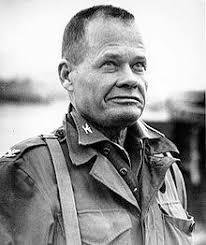
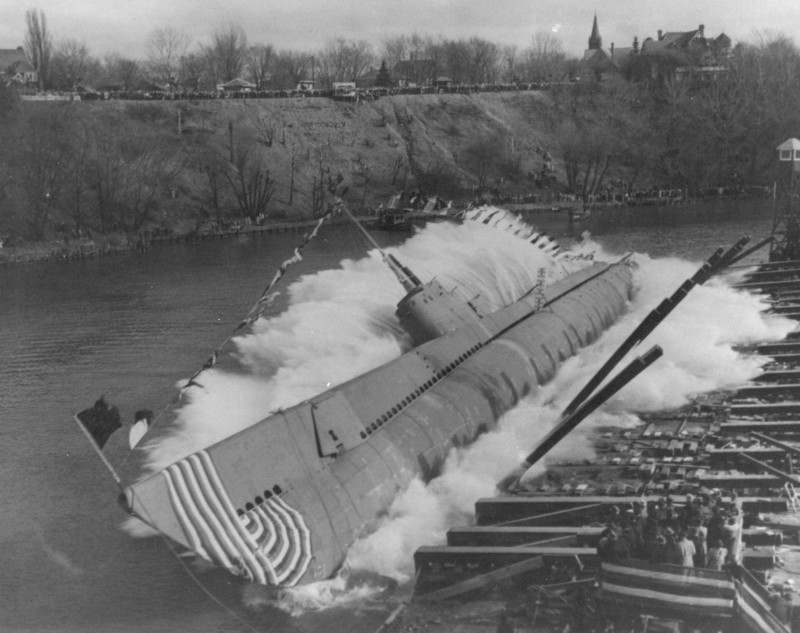
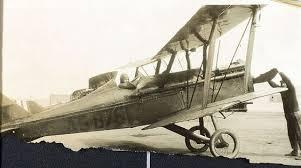
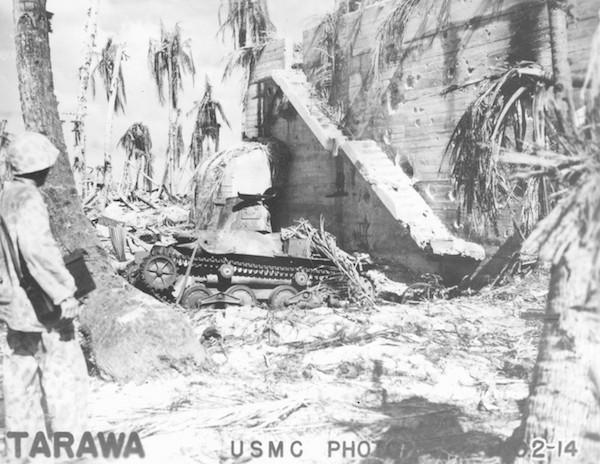
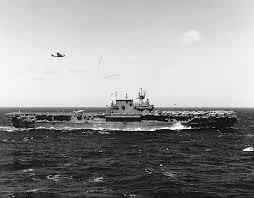
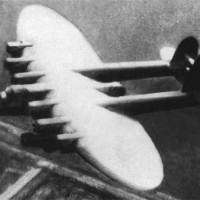
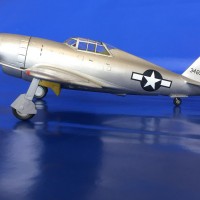
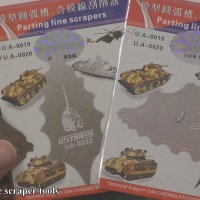
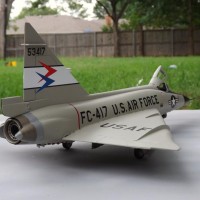
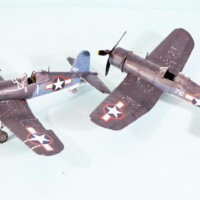
David, those quotes made my day, and mind you it started on the wrong foot with some block ramming my car early morning
?
Pleasure, Pedro. Glad to make you smile.
I haven't heard of this 'Chesty' character before. However, I highly approve of his sardonic turn of phrase.
Chesty went on to become the most decorated marine in US history. He is a legendary character with an amazing history. Tom C will probably/hopefully be along soon to add a few details...
Yeah Big 'E'!
Your wish is my command, David.
“They’re a damn sight better than the US Army. At least we know they’ll be there in the morning” (About the Chinese surrounding him, and just to show it wasn’t only the Air Force he had it in for).
He was right about the Army, which was at that moment participating in what Sir Martin Gilbert later described as "The greatest defeat of a previously-victorious Army in recorded history," and Secretary of State Dean Acheson called "The greatest defeat of American arms since the Second Battle of Bull Run." The Army's retreat out of North Korea is the longest in American history at 150 miles, and involved such disasters as "The Death Ride to Kunu-ri" in which the Second Infantry Division lost nearly 4,000 men killed, wounded and taken prisoner going through a pass from the Chongchon River front to Kunu-ri, which effectively destroyed the division as a military unit and put it out of action for six months while it was rebuilt.
The Chinese (rightly, I think) consider that they won the Korean War, since no western power has ever threatened them militarily since, and the memory of the defeat inflicted in November-December 1950 was so strong that it dominated U.S. military strategy a decade later in Vietnam (of course also demonstrating that generals are always well-prepared to fight the last war, since no American in authority had the slightest understanding of the 2,000 years of bad blood between China and Vietnam, that meant China would not intervene in that war).
The reason Chosin shines as it does in Marine history is because it took place in such utter darkness.
The Kunu-Ri "Death Ride" was on the West side of the Korean Peninsula. This is where the 2nd Infantry Division suffered it's highest number of casualties during the War.
The Chinese entered the Korean "Police Action" by infiltrating troops along the North Korean border starting on 25 October and throughout November 1950. This information was being passed along the Chain of Command since Chinese troops were being encountered on patrols, with some being captured. The Chinese POW's were being interrogated, so it was confirmed that some of these prisoners were indeed "Chinese". Unfortunately this information fell on deaf ears in the highest places. There was even a comment made about "Chinese laundrymen" by General Almond...so it's clear the US severely underestimated the Chinese.
The UN Forces were split by the Taebaek Mountain range, with one Command on the east side (where the Chosin Reservoir is) and the other Command was West of the Mountains, where the "Death Ride" occurred.
What many people fail to realize, is that "ALL" UN military forces in the Chosin area were "Officially" placed under the command of the Marine Corps Major General Smith on 29 Nov 1950. This was not publicized and in fact remained "Classified" information until early January 1979 ! I believe this is part of the reason why you never hear about anything the US Army did here.
But they WERE there, alongside the Marines at the Chosin, and should also be considered part of the "Frozen Chosen".
The US Army's 31st Infantry Regiment was farther North of the Marines, and on the East side of the Chosin. They acted as a buffer while the Marines were able to regroup under the initial Chinese assaults. Because of this delaying action, they suffered serious casualties.
Around 900 wounded (or those who suffered from cold weather injury) US Army soldiers from the 31st RCT were evacuated from Hagaru-Ri by C-47's.
Going from memory, I believe they only had a total of 385 "Able Bodied" soldiers (out of approximately 3,000), that were still fit for duty by the time they finally reached Hungnam. By able bodied, I mean they could walk and hold a weapon. They could have still been wounded... The rest had either been killed, wounded, captured, or suffered from cold weather injuries.
When the Chinese opened up their archives to the US, they confirmed that they attacked the 31st RCT with no less than NINE Chinese Divisions. At this time when the Chinese attacked, the 31st RCT consisted of only Two Battalions and they only had 8 Howitzers available ! The 31st had a Tank Company, consisting of 12 tanks, (M-26's I believe), but it was held back and was later "attached" to the Marines at Chosin.
Even so, and without tank support, the two Battalions of the 31st RCT present at the Chosin reservoir inflicted some serious casualties on the Chinese. I believe that several of the Chinese Divisions facing the 31st were actually annihilated at were never reconstituted later during the War.
Had these tanks from the 31st Regiment been put to better use, things "may" have been better for all of the UN Forces involved on the East side of the peninsula. We can armchair this all day long.
The bottom line is this: There was a lack of communication between the Marine and Army units. The weather was horrendous and they were severely outnumbered.
All factors considered, I believe that all of these units involved (Army AND Marine) all fought bravely no matter what "Chesty Puller" may have thought about the Army...
Here's a link to an article that I read a while back when doing some research.
http://www.koreanwar-educator.org/topics/chosin/vallowe_research/vallowe_chapter_12.htm
It confirms some of the statements I made above. My Dad served with the US Army and he was there at Chosin... alongside the Marines... who also retreated to Hungnam.
My Dad told me (much later in life), that the Medics and Corpsmen kept morphine ampules under their armpits and occasionally in their mouths to keep them from freezing so they could use them when they were needed. Otherwise they would have frozen solid. But then he added that the morphine soon ran out...and so did the bandages. Strangely he told me that people don't bleed "as much" when it's "really cold". Dad told me that the cold weather actually saved some men from bleeding to death.
Another problem he told me about was not having enough water to drink. Their water canteens would freeze solid. Some men resorted to eating snow, but this would also make them more susceptible to succumbing to the extreme cold.
Looking back at my childhood, I now understand why my Dad didn't want me playing a Trumpet...
(It must have been too much like a Chinese Bugle), He didn't even want me blowing a whistle.
I can only imagine what it reminded him of. Sorry dad...had I only known then what I know now.
I believe another quote of "Chesty" Puller's during this "Advance" to Hungnam was "Retreat Hell ! We're advancing to the rear ! "...
Thanks, Louis.
More research to do, now. Let’s not forget how much he insulted the Air Force...
It is clear the issue of communication (especially in the higher echelons) was key in catastrophically poor decision making. I just keep thinking of the hostility of the conditions those guys (all of them) fought in.
As you said a few days ago, Louis, freedom did not come free. Be it it Korea, South Pacific, Asia, or Western Europe.
the pictures can do the talking...
These are from the Korean War Monument.
In the last picture it is written in stone:
"Freedom is not free"
For many years known as the forgotten war. But as more facts have come to light. With the recent political news in the last year with nuclear threats from N. Korea has sparked more research and interest into that conflict as more personal stories that have not been told are now being revealed. There will be more I am sure that will shed more light to the war. The Brits and the Aussies will have so more stories to tell as well.
Thanks, Tom. Thanks for the input. Having read your book on Chosin (and followed up on some of the citations and references in it) I feel I have a competent opinion in this subject. If politicians and generals would take even a passing interest in WORLD history, we’d have a differrent geopolitical and martial perspective and we’d have a more stable and better planet.
That said, in tight spots in life (and we all have them) - I think, “what would Chesty do? I remember reading an account of him seeing his son after his legs blown off in Vietnam and Puller senior just wept and wept. I suspect the futility of repeating doomed cycles went through his head.
Simper Fi.
Jerry "Mad Dog" Shriver on being surrounded in Cambodia "I've got 'em right where I want 'em, surrounded from the inside!"
That's a good one !
Chesty was a cousin of George Patton